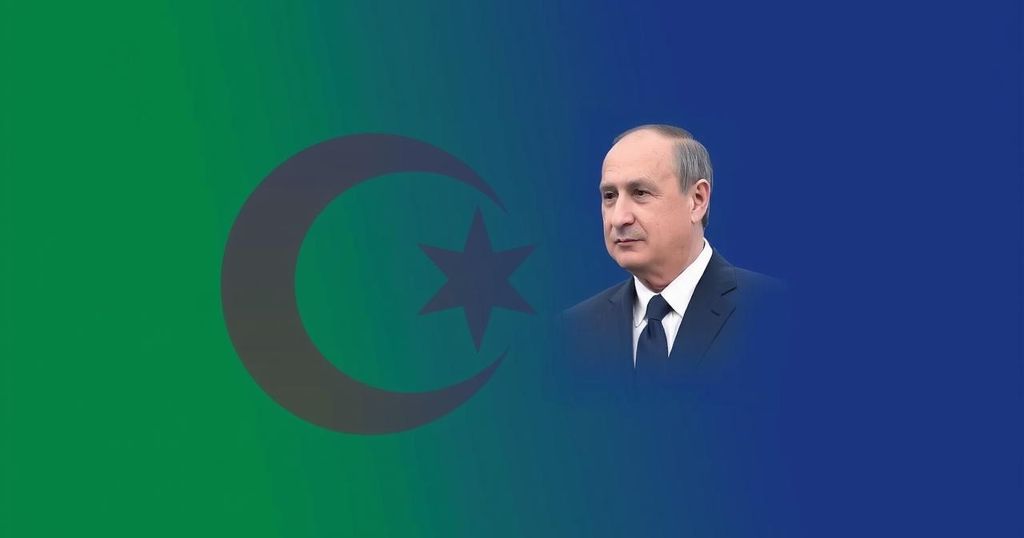Ahead of COP29, Azerbaijan faces significant criticism for its crackdown on rights defenders and media. Amnesty International and other groups have called attention to the plight of at least 14 jailed journalists, urging for civil liberties during the conference. The event has highlighted the necessity for human rights protections alongside climate action, raising questions about the legitimacy of hosting such a pivotal conference in a country accused of widespread repression.
Before the curtains rose on the COP29 climate change conference in Baku, Azerbaijan, international human rights organizations sounded alarm bells over the government’s severe crackdown on dissent. Ahead of the event, Amnesty International urged attending delegations to advocate for an end to this suppression, advocating for civil liberties and freedoms that are crucial for a vibrant civil society. As the conference began, reports emerged of at least 14 journalists jailed under dubious circumstances, with accusations of currency smuggling that many claim are politically motivated.
A coalition of Azerbaijani civil society representatives made a poignant appeal to COP29 attendees, highlighting a troubling timeline that began when Azerbaijan was designated the host. They reported an intensified silencing of opposition voices and described harrowing detentions of activists and media figures, all while the world gathered under the guise of climate dialogue. According to the authorities, these arrests are based on legitimate legal grounds, distorting the narrative of targeted persecution.
Amid the climate discussions, a session organized by prominent human rights organizations underscored a critical link: climate justice cannot exist without a robust civic space. Activists emphasized that without the freedom to speak and act, meaningful progress on climate issues remains a distant dream. Efforts to engage Azerbaijani officials during the conference urged them to liberate all political prisoners and create an enabling environment for civil discourse.
In a letter addressed to President Aliyev from the Council of Europe Commissioner for Human Rights, concerns were voiced over the ongoing arrests of journalists and activists. The message was clear: Azerbaijan must adhere to its commitments as a member of the Council of Europe, ensuring fundamental human rights are upheld. In stark contrast, Azerbaijani officials defended their legal actions, insisting that no one is persecuted without due cause and rejecting any implications of wrongdoing on their part.
As voices from both sides clash, others lament the irony of hosting such a pivotal conference in a nation accused of violating basic freedoms. Advocates contend that the climate summit legitimizes a regime notorious for repressing its citizens, enhancing its image on the world stage while ignoring the cries for justice from within.
Ultimately, Azerbaijan’s response was one of defiance against the accusations, labeling them as part of a broader smear campaign. Meanwhile, the narrative unfolds as COP29 draws attention not only to the urgent climate crisis but also to the dual challenge of ensuring that human rights are not sacrificed in the pursuit of sustainability. As the summit progresses, the call for an authentic dialogue on climate justice echo in tandem with the relentless demands for human rights, setting the stage for a complex interplay of themes resonating far beyond the conference halls.
The backdrop of the COP29 climate change conference in Baku is fraught with tensions stemming from Azerbaijan’s crackdown on dissent and civil rights. The Azerbaijani government’s repressive measures against journalists and activists have raised international concerns just as the world focuses on climate action. Amnesty International and other human rights organizations have been vocal about civil liberties violations, asserting the necessity of protecting freedom of expression and assembly, especially in the context of global discussions on climate change. Azerbaijan’s complicated relationship with civil society is of significant importance as the country grapples with its human rights record while trying to position itself as a legitimate player on the international climate stage.
In conclusion, the COP29 climate conference in Baku serves not only as a critical gathering for addressing climate change but also highlights the stark reality of human rights violations in Azerbaijan. Calls from various organizations urge the Azerbaijani government to address these issues seriously, advocating for the release of political prisoners and the nurturing of a free civil society. The juxtaposition of climate discourse against a backdrop of repression compels a broader reflection on the necessity of safeguarding human rights as pivotal to achieving sustainable solutions to global challenges.
Original Source: www.voanews.com



